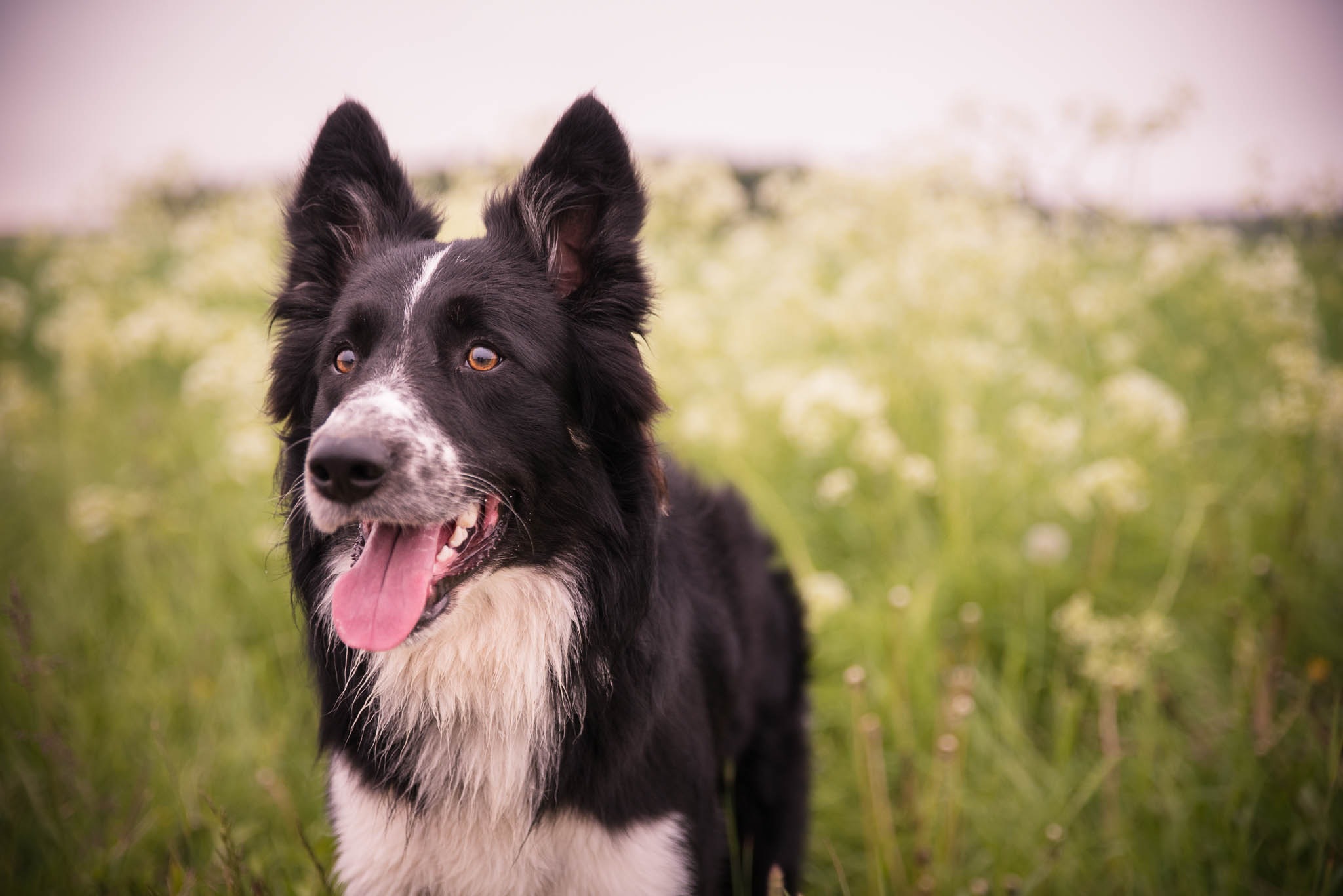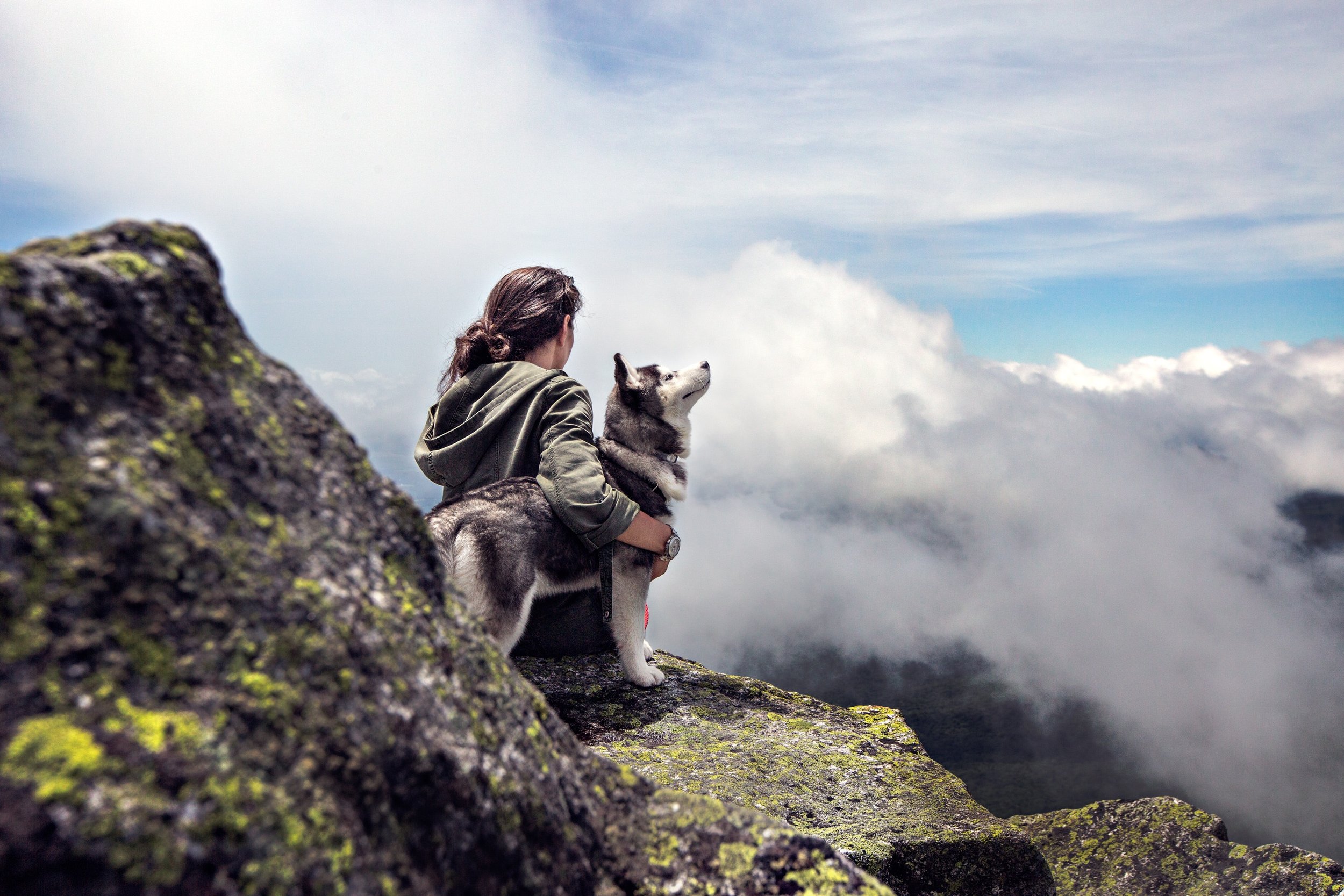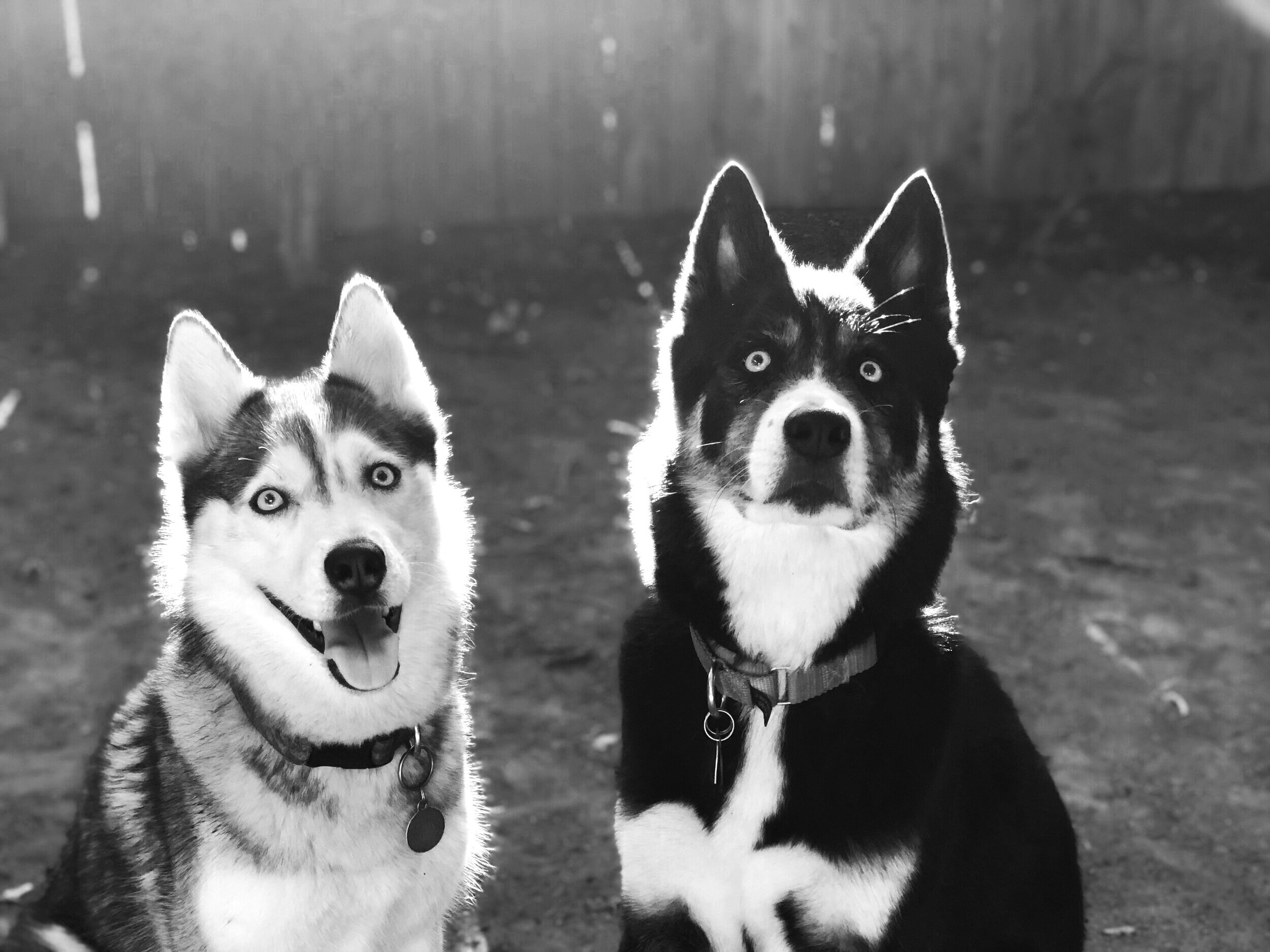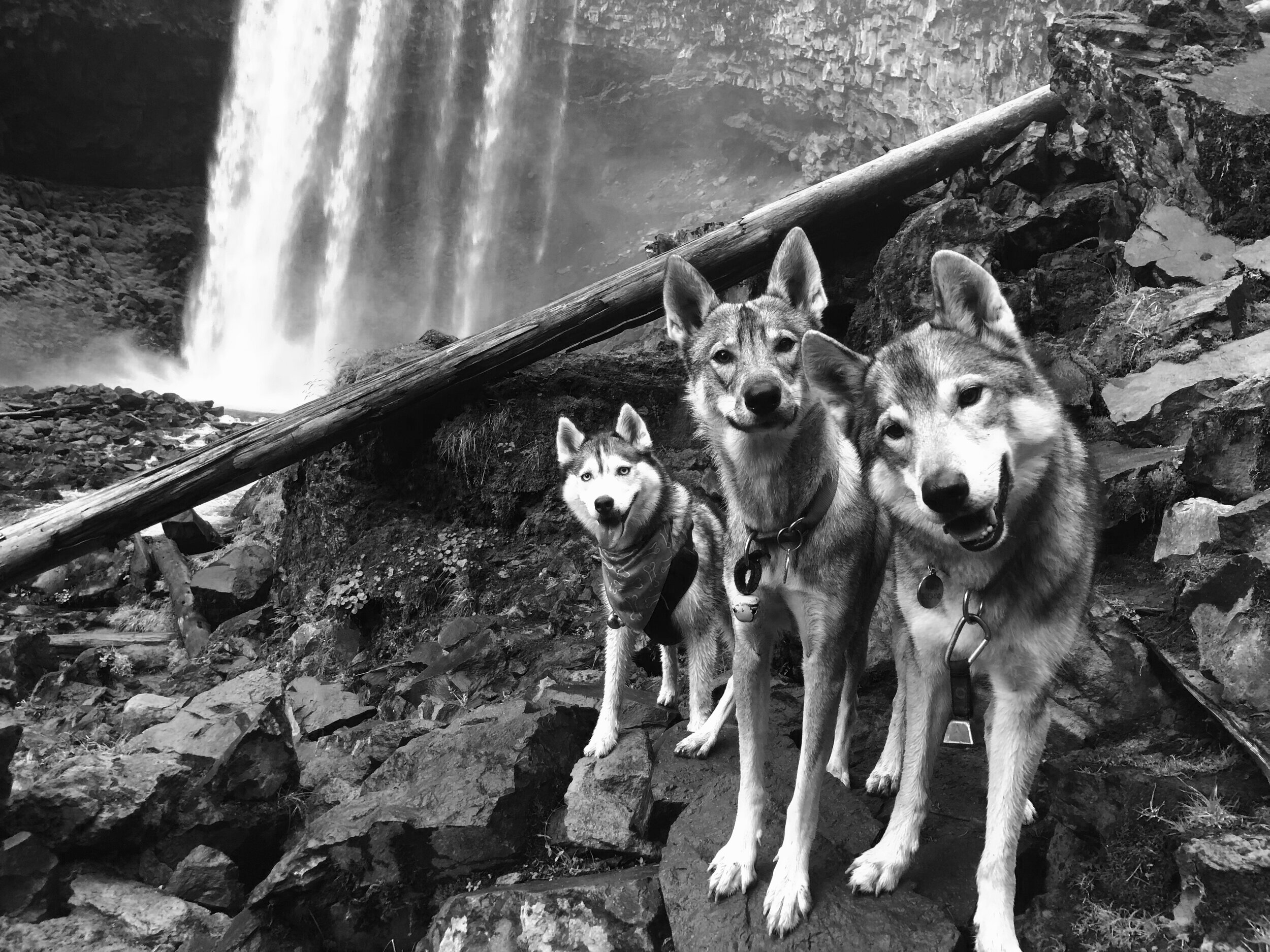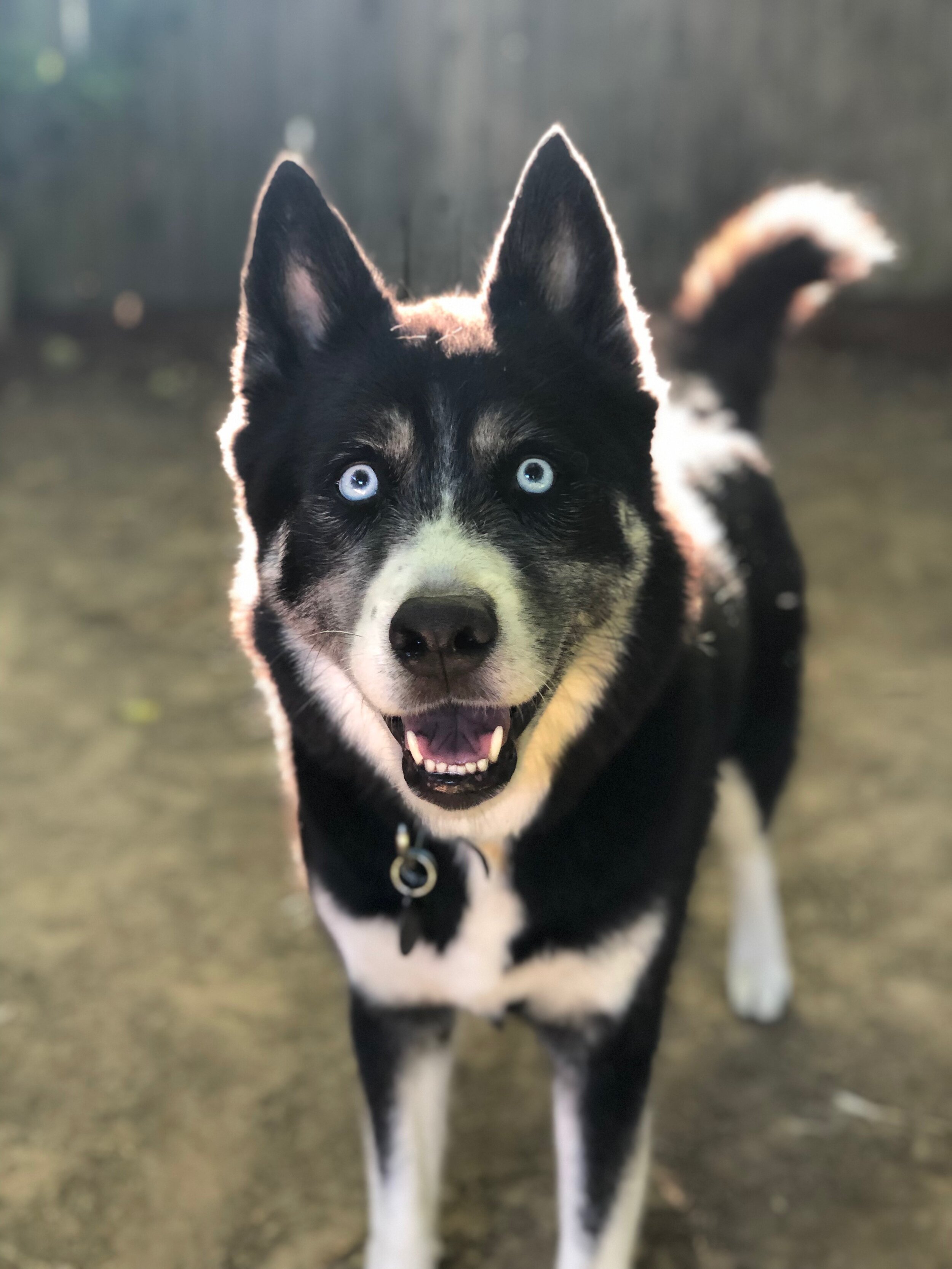What Do Our trainers do when…
What do our trainers do when a dog responds correctly to a request?
We use marker training to capture the correct response to the request. A marker is always followed with reinforcement the dog desires. Most commonly we reinforce desired behaviors with treats, toys, praise and/or access to the environment. We focus on using an "errorless learning" pedagogy. This means we strive to set the animal up to be "right" every step of the way. We believe if we are doing our best, the dog does not have to make errors to learn what we want them to learn. This creates a dog who is confident in the classroom and LOVES it too!
What do our trainers do when a dog responds “incorrectly” to a request?
Though we aim for an errorless learning experience for the dog, often times we humans are ALSO learning, and mistakes are bound to happen. We don't think this is a big deal and we do not recommend punishing a dog in any way or form for making what we may perceive to be an error. We also don't believe in punishing or shaming our human learners when they make errors. Mistakes are just information about what we could do better to set our dogs and each other up to succeed.
We believe when the animal responds incorrectly to a cue, the following things could be at play.
We increased the difficulty of the skill too soon.
We increased distraction in the environment too soon, or asked for too challenging of a skill given the environmental distractions present.
We lumped together to many "steps" in the learning process and the dog isn't actually clear on what is expected.
The dog does not find the reward to be "reinforcing", therefore "it's not worth it” for them to preform the behavior requested.
The dog is stressed, anxious or experiencing an underlying medical issues such as chronic pain.
The dog’s core needs aren't being met.
When a dog responds “incorrectly” we go back to the drawing board and assess which of the above items might be at play and ask ourselves what can we do to help them succeed next time! Approaching behavior this way allows us to be active participants in every aspect of our dogs learning journey, and also hold us accountable.
THE SIX CORE PRINCIPLES
of Noble Training
Training is more than teaching dogs to do stuff.
Training is about understanding how behavior works!
Training is about applying this science ethically, and in consideration of the individual human’s and animal's welfare.
Training is about learning to listen; it is entering into an empathic dialogue between two species.
Training is about setting realistic expectations, and being willing to compromise.
Training is about establishing sound and harmonious relationships with each other, with the world, and the environment we live in.
